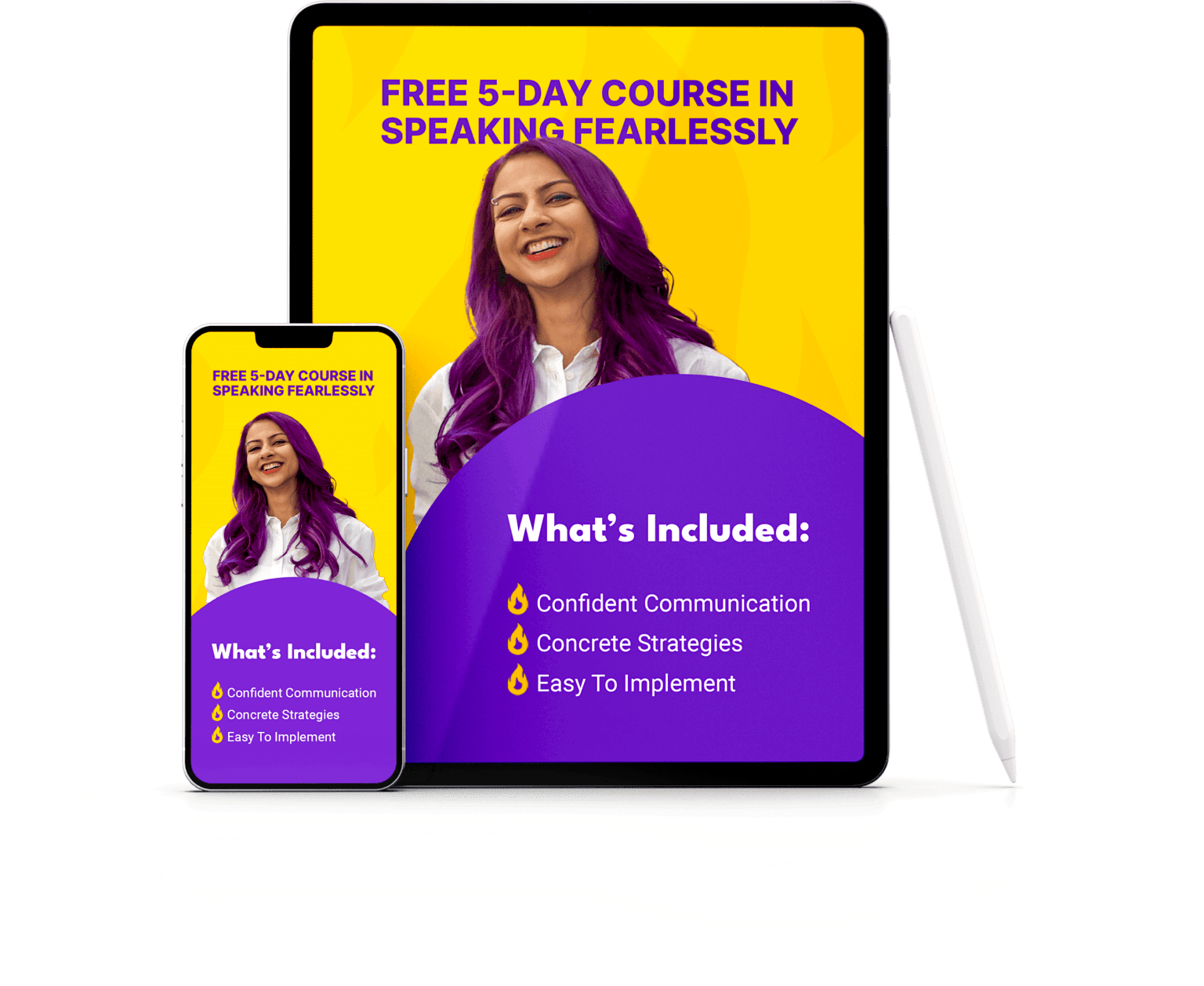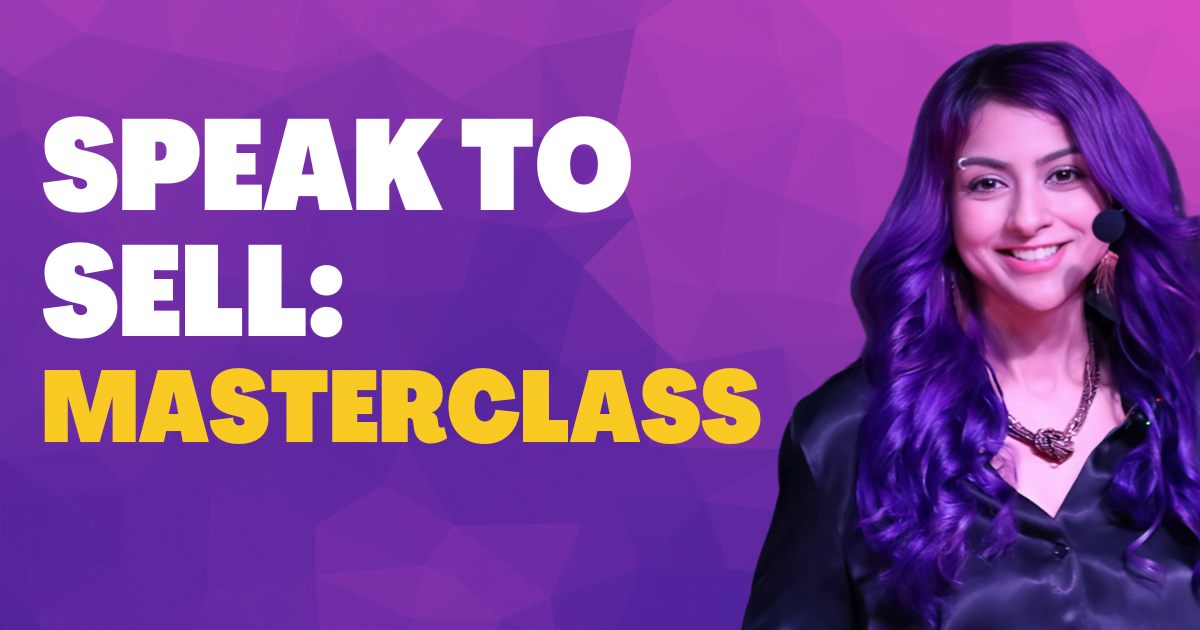A New Year’s resolution that I’ve been hearing a lot is: “Nausheen, I want to do a TEDx talk. How do I get started?”
The goal doesn’t surprise me. Adding the revered “TEDx speaker” title to your bio and your LinkedIn is attractive.
It lends you credibility. It shows your expertise. It proves you’re damn serious about what you’re doing.
I know because I’ve done three TEDx talks and it’s opened countless doors for me.
But how to actually go about it is a black box for many. So I’m here to demystify the process for you from idea to TEDx.
Many TEDx coaches charge you thousands of dollars to tell you this.
But here’s everything I know, for you, for free.
Let’s go:
1. Find a TEDx-worthy idea
Every idea is not worthy of a TEDx talk.
Your story – even if it’s super unique – is unfortunately not a TEDx talk. You need to come up with an “idea worth sharing” for TEDx. More specifically, your TEDx idea should be:
- Somewhat new, surprising or unexpected.
- Applicable to a wide audience.
- Actionable.
Note that I say “somewhat” new. One could argue that nothing is totally new. But your idea can’t be so obvious that people say “well, duh”.
The second criteria – being applicable to a wide audience – is a bit more confusing for folks. We are all completely immersed in our industries. We think – “well everyone should care about B2B SaaS”.
But sadly, they do not.
Find a topic that a broad audience will be able to relate to and care about.
Actionability is the difference between a talk stops with you, and one that lives on with the audience. This is exactly why just talking about your story is (unfortunately) not enough. But you can use your story to lead the audience towards something actionable that will improve their lives.
Check out how I used my personal story to create an actionable framework in my first TEDx talk.
2. Find TEDx events to pitch to
All TEDx stages are not equal.
I’d recommend finding a TEDx event that is:
- Recorded (not all are).
- On a big stage (vs a small salon).
- Less saturated (aim for small cities vs big ones).
Keep in mind TEDx doesn’t pay for you or your expenses. (But the investment is worth it).
I recommend finding at least 15-20 TEDx events to pitch to, at the start.
3. Pitch
This is weirdly more complicated than it needs to be.
All TEDx event websites are not up to date. They don’t all have an “Apply to be a speaker” form. You might need to find the organizing team, email them or catch them on LinkedIn and ask how to apply.
I recommend getting hyper-organized here and start a TEDx sheet containing:
- The events you want to pitch to.
- How to apply to them, with form URLs and emails.
- The current status of each event: pitched, following up etc.
Each TEDx event has their own application process. But in general, they all want to see:
→ Your TEDx idea, expressed as simply as possible.
→ How your topic relates to the event theme.
→ Why you’re the best person to do this talk.
→ Why it’s an important topic to address.
→ Your previous speaking experience.
4. Follow up
This step requires the most patience.
What I’m hearing from other TEDx coaches is that more and more event organizers are basing their decisions on their network and relationships.
This may sound like bad news for those of us who are not fortunate enough to have a friend who’s organizing a TEDx talk.
But it’s not.
It just means you need to factor this into your follow-up approach.
Your follow-up process should not be to bother the organizers or ask them for a status update. Aim to build a relationship with them:
- Connect with them where they are active.
- Offer to help connect them with someone in your network.
- Show genuine interest in their content, their personal brand.
For my second TEDx talk, I had pitched to an event and had been turned down at first. But I made sure I stayed in touch with them.
I commented on their posts. I stayed top of mind. I even helped connect them with a friend who ended up being a speaker.
And then – a week before the event, they contacted me. A speaker had a last-minute emergency and had to drop out.
I was in.
All because I had invested in building a relationship with them.
5. Iterate, Improve, Stay motivated
Don’t let the rejections demotivate you.
Ask each team that rejects you – “How could I have made my pitch better?”
Show your friends, team, bosses/ex-bosses your pitch. Ask them if it’s new, surprising, appealing and actionable.
You can also work with a coach at this stage to refine your idea or find new angles to pitch.
It took me 6 months to land my first TEDx talk, 9 months to land my second, and 3 months to land my third. If you have a TEDx-worthy idea, and if you put in the work, you will get a TEDx opportunity.
Bonus:
You got that awesome email that says “We are interested in moving forward with you for our TEDx event”.
Now it’s time for one or more interviews with the TEDx team, and potentially past TEDx speakers.
This is the stage where they want to see how you express your ideas, what your attitude and personality are like, and what kind of presence and vibe you bring.
I hope you achieve your TEDx dream this year, rockstar.
Till we meet again,
💜 Nausheen

